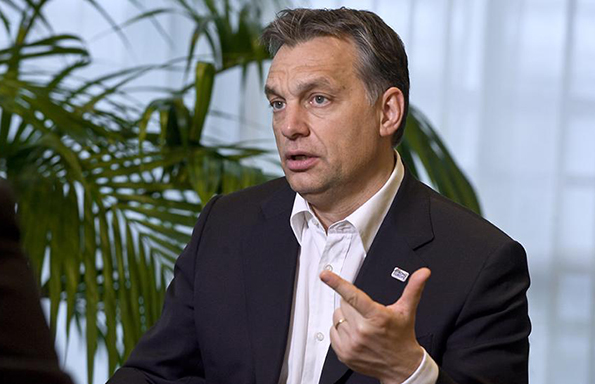
Professor Erika Harris is Co-Director of the University of Liverpool’s Europe and the World Centre, part of the Department of Politics
When Jean-Claude Juncker, president of the European Commission met Hungarian Prime Minister Viktor Orbán in Riga in May 2015, he greeted him by saying “hello dictator”.
Juncker’s words were perhaps an ironic response to Orbán’s earlier statement that he wants to “build an illiberal state based on national foundations”, citing Russia and China as examples. He might also have been referring to the way Orbán has been gradually amending Hungary’s constitution to give his government more power. His efforts to date have left his FIDESZ party with significant control over the judiciary, media and banks.
Whatever Juncker’s motivation back at that meeting in 2015, the scathing greeting now doesn’t look all that misplaced.
Orbán has long been a nationalist but his rhetoric of late has whipped up xenophobia. His government has cracked down on the media and non-governmental organisations that are considered disloyal to the nation. All this seems to be part of a general shift away from Hungary as a liberal democracy.
Orbán is a staunch critic of Western European multiculturalism and immigration. When the migration crisis hit in 2015, his country quickly became notorious for the brutal way it was treating the refugees arriving at its borders. Orbán himself referred to the refugees as “poison” and erected razor-wire fences on Hungary’s southern borders to keep them out.
State acquisitions
Orbán presents himself as the “defender” of the Hungarian nation. His nationalist rhetoric is laced with references to the the Treaty of Trianon, signed at the end of World War I. The treaty deprived Hungary of two-thirds of its territory – and Orbán takes every opportunity to remind people of that.
The strategy seems to be to redress what Orbán sees as a historical injustice by stoking ethnic nationalism. He regularly clashes with the EU over anything that could be construed as an attack on the identity and integrity of the nation state. The EU’s efforts to deal with the migration crisis through a quota system were a particular point of contention. He even took the matter to the European Court of Justice, so opposed had he become to Brussels asking him to take in a certain number of refugees.
Meanwhile, Orbán’s government has been acquiring various print, broadcast and online media outlets. According to the latest Freedom House report, Hungary, for the first time, has the lowest “democratic score” (3.54 out of 7) in the Central European region. The report raises concerns about corruption networks and the use of public power and resources to reward friendly oligarchs.
Policy institute Globsec also recently warned that the Hungarian government has a “firmly pro-Russian view” and that its national media have been weakened by a “vast concentration of ownership by pro-government oligarchs” who are “completely biased on issues of the EU, NATO and Russia”.
This pro-Kremlin stance was particularly interesting to witness while Hungary benefited from a €10 billion loan from Russia for the development of its nuclear power.
The EU looks on
Yet, the EU only began to officially debate Hungary’s drift to illiberal democracy in April 2017. That’s when the Hungarian parliament adopted a higher education law that threatens the survival of the prestigious Central European University (CEU) in Budapest.

Author provided
The university was founded by the Jewish Hungarian–American billionaire George Soros to promote liberal democracy and open society in post-Communist Europe. The law places restrictions on the CEU that many argue will make it impossible for it to operate freely, if at all.
Orbán and his government did not stop at the legislation, but continued with a sustained attack on Soros in a thinly disguised anti-Semitic campaign, casting him as manipulative and powerful. Posters have appeared showing a grinning Soros above a caption reading: “don’t let Soros have the last laugh!”.
Speaking to students in July, Orbán claimed that a “Soros plan” was underway, aiming to bring “hundreds of thousands of migrants … from the Muslim world into the territory of the EU”. This agenda, he argued, lies behind “Brussels’ continuous withdrawal of powers from the nation states”.
Similar critiques of such liberal values can be heard from populist politicians the world over, but Orbán is a worrying case. His intensifying rhetoric and growing indifference to democracy, combined with his government’s slow but systematic dismantling of democratic institutions are evidence that he is making steady progress towards establishing the illiberal state he so openly envisages.
This is not to say that Hungary will leave the EU, but Orbán is playing a dangerous game. He is exploiting nationalism at home and attacking the EU, all the while taking its cash for short-term political gain.
This article was originally published on The Conversation. Read the original article.